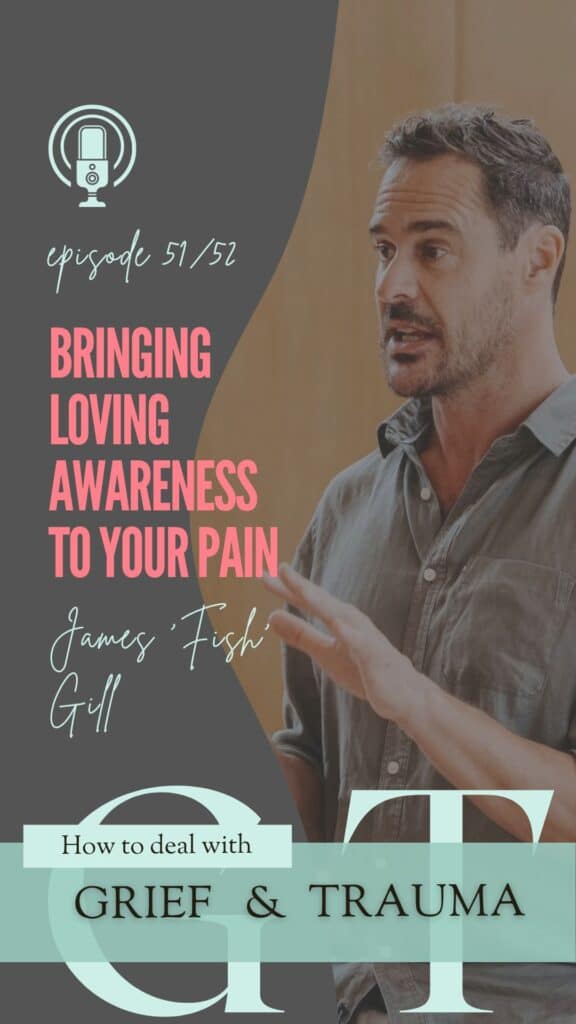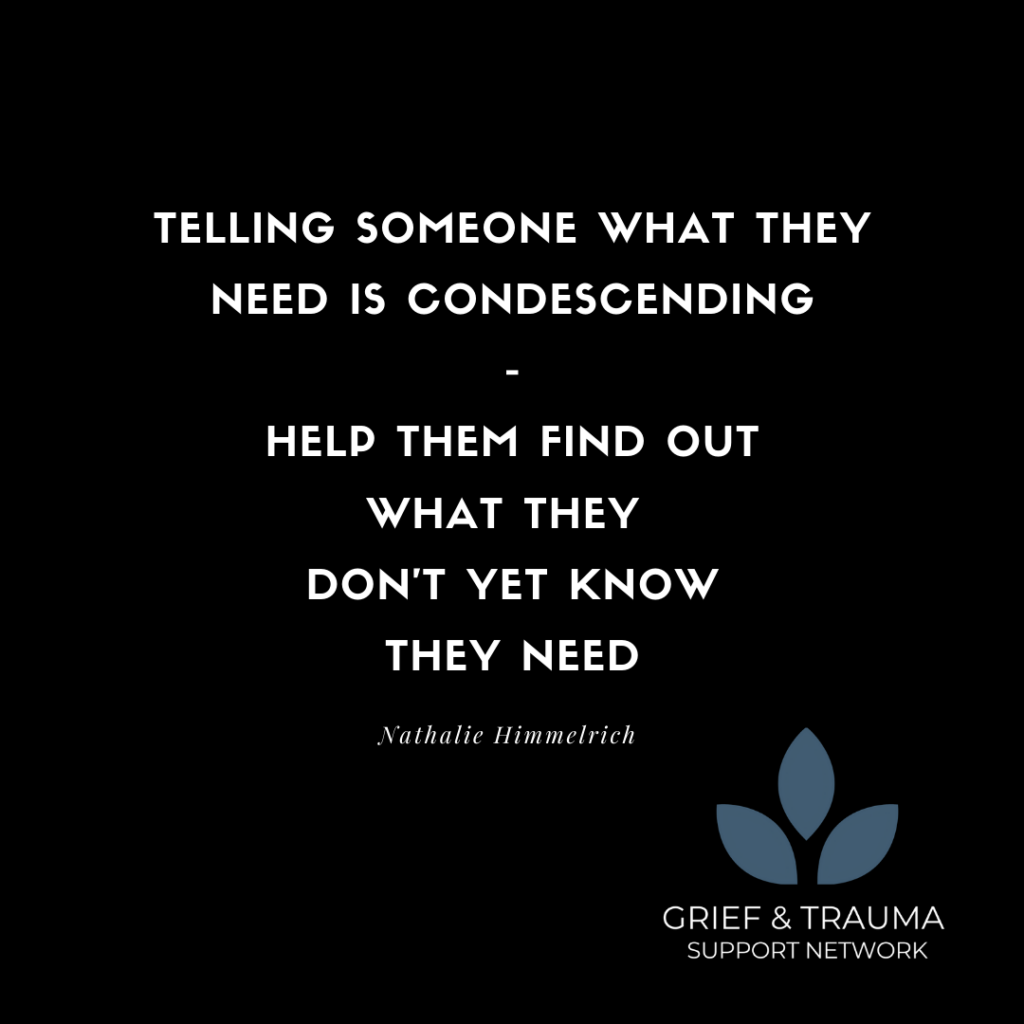
➡️ If you haven’t listened to Part 1 – head back here first.
HOW TO DEAL WITH GRIEF AND TRAUMA is completely self-funded, produced, and edited by me, Nathalie Himmelrich.
Consider making a small donation to support the Podcast: bit.ly/SupportGTPodcast. Thank you!
For more information, please visit Nathalie’s website, join the podcast’s Instagram page, and subscribe to the newsletter to receive updates on future episodes here.
About this week’s episode
This amazing conversation with James Fish Gill from Australia comes to you in the form of a double episode. Fish, as he refers to himself, has so much wisdom to share, I already knew before we started recording that it would not fit into the usual 45 minutes of this podcast. I knew Fish from Instagram, where I became intrigued with his approach to conscious communication. Listening to some of the podcasts where he had been a guest, I’ve been so drawn to what he shared in his capacity as a coach and through his unique approach.
In episodes 51 and 52, he takes us through how he dealt with his own grief, using the approach of conscious communication with himself: first, he honestly acknowledged and validated all his thoughts, then felt into the actual emotional experience. From there, he entered the field of his yearning and the longing in his heart which he recognized and honored, even when it – in the case of his loss – could not be met. Bringing loving awareness to the whole experience, without wanting to change it, makes every component of the experience matter.
Fish says we are not usually bringing loving awareness, but we are trained to respond to pain by usually dismissing, minimizing, comparing, assigning fault, understanding, or fixing when what it actually needs is validating it.
Ok, I won’t say more but I can promise you with certainty that if you listened to one episode, you would want to listen to the other too.
About this week’s guest
James Gill (aka ‘Fish’) is a heart coach, yoga teacher, and transformational facilitator based in Australia and working internationally. He is committed to the global spread of conscious communication practices that enable all beings to experience love in every moment which appears to have gone missing.
Fish’s links:
- Website: leadbyheart.com
- Instagram: @james_fish_gill
Resources mentioned in this episode:
- The Guest House, poem by Jelaluddin Rumi
Thank you for listening!
HOW TO DEAL WITH GRIEF AND TRAUMA is produced and edited by me, Nathalie Himmelrich.
Support the show
- Become a supporter of the show! Starting at $3/month
- Join Facebook Group – Grief and Trauma Support Network
- Download the FREE grief resource eBook
- Book a complimentary Discovery Call
- Leave a review





